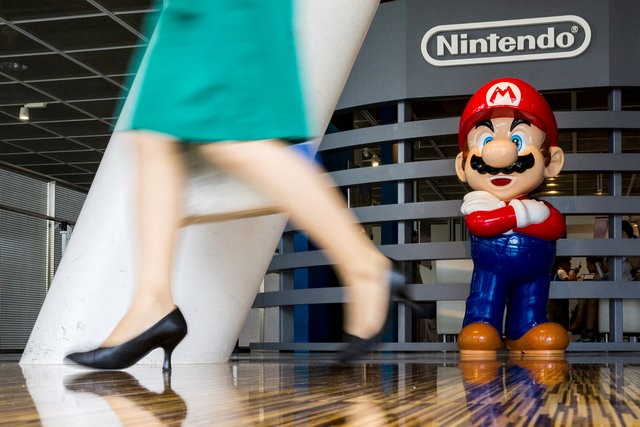By Makiko Yamazaki and Tim Kelly
TOKYO (Reuters) - Flush with the stunning popularity of the Pokemon GO mobile game, Nintendo aims to make more from marketing popular characters such as Super Mario, taking a leaf from the Walt Disney playbook where Mickey Mouse and friends bring in billions of merchandising dollars each year.
But, where Disney's animated characters often earn more than the films they star in, Super Mario, Pokemon and other Nintendo franchises have languished amid the Japanese firm's reluctance to push them beyond its struggling game console platform.
The success of Pokemon GO - created by Nintendo, Pokemon Company and Niantic, a Google (NASDAQ:GOOGL) spinoff - may signal that Nintendo's move to let its characters roam beyond that console universe could help revitalize a company that had grown from a card game maker in nineteenth century Kyoto to the world's top computer game and console maker.
"We are now expanding how we leverage Nintendo IP in various ways beyond our traditional use of them predominantly within the dedicated video game platform business," Tatsumi Kimishima, the company's president, wrote in a message to investors.
It could be sitting on a goldmine.
"We believe the value of Nintendo intellectual property is enormous and will eventually be unlocked over a 3-5 year period," Jefferies analyst Atul Goyal wrote in a Monday research note.
A spokesman for Japanese toymaker Takara Tomy said: "We are seeing a resurgence of interest in Pokemon toys after the launch of Pokemon GO."
Nintendo, which on Wednesday partly blamed a strengthening yen for its April-June operating loss, is said to be doing more to expand the reach of its popular franchise characters, which also include The Legend of Zelda.
"Nintendo used to have only few people in its licensing business and deal only with a limited number of merchandising companies," said a toy company official, who asked not to be named as he is not authorized to talk to the media. "That's gradually changing as the company has made it clear it will boost its IP business."
Shigeru Miyamoto, the creator of the puppet-inspired Super Mario, has indicated Nintendo has more appetite now to allow its franchise characters to spread beyond console gaming, and into revenue generating licensing agreements.
"These projects will take time to bear fruit, but they are something to look forward to," Miyamoto told Nintendo's shareholder meeting late last month, adding Nintendo had started licensing characters for attractions at Universal Studios theme parks and was working to expand Nintendo products.
FADED WII
Since its Wii game console boom faded four years ago and its successor, the Wii U, flopped, Nintendo has been buffeted by losses that have more than halved its cash pile to around $5 billion.
Nintendo sold almost 100 million of its Wii consoles between its late-2006 launch and end-2011, the year before the Wii U was released. Subsequent sales of the Wii U have added only 13 million units. As casual gaming has shifted from the living room to the smartphone, sales of its handheld 3DS video game system are just a third of the older DS model.
Wary of losing focus on its ailing console business, Nintendo has largely steered clear from producing games for other platforms or agreeing lucrative licensing agreements.
In the year to end-March, the company's licensing revenue was just 5.7 billion yen ($54.2 million) - around 1 percent of overall sales, and a tiny fraction of what Disney earns from the likes of Mickey Mouse, Toy Story, Winnie the Pooh and, more recently, Star Wars.
Disney's revenue from consumer products - from Mickey Mouse tea pots and tie clips to books, magazines and even English language schools in China - totaled $4.5 billion in its last full business year - around 9 percent of its total sales.
It was Disney's fastest growing business segment in the year to Oct. 3, 2015, with operating profit up 29 percent from a year earlier. While the Toy Story 3 movie, released in 2010, earned Disney $1.7 billion at cinemas and from TV broadcasts, the franchise's licensed toys, books and a smartphone app have brought in $7.3 billion.
That's a merchandising masterclass that some investors reckon Nintendo will struggle to match.
"Monetising IP is a whole different thing from selling games," said a fund manager at a Japanese asset management firm which owns Nintendo shares.
"They say they're going to sell a wrist watch, but it's adults who are playing Pokemon GO ... and are they going to wear a Pokemon GO Plus watch?"

($1 = 105.1900 yen)